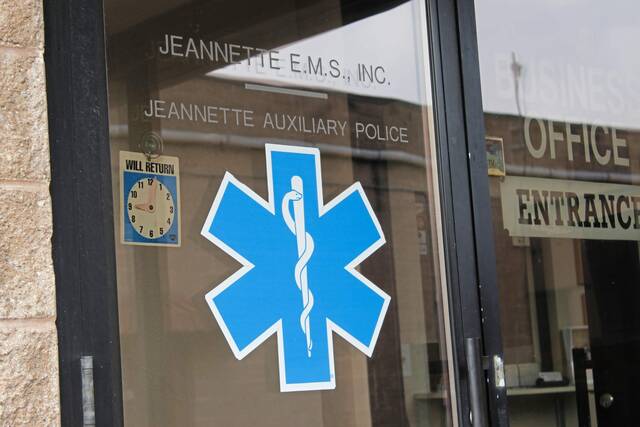There are few things we depend on more than the idea that when we call for help in an emergency, help will come.
We call for police. We call for the fire department. We call for medical assistance.
For 63 years, Jeannette EMS ambulances showed up for heart attacks and car crashes and other medical problems.
At 7 p.m. Monday, that stopped. The EMS service stopped answering calls. It stopped rolling ambulances. Its duties will be picked up other providers — Penn Township Ambulance on one side and Mutual Aid on the other — but the closure leaves people without that close option at hand.
But how long is that something that can be guaranteed?
For years, emergency medical service providers have been pinched financially. The cost of providing care and transportation and the difficulty of finding and paying paramedics and emergency medical technicians is bad enough. The struggle to collect funds is worse.
“When we bill the insurance company for an ambulance trip, they have a formula that dictates what they believe is a good price to pay for that service, and then they are only paying 80% of that total, which could mean $125 or so on an $1,100 bill,” said Jeannette EMS executive director of operations Randy Highlands wrote in a letter to the Tribune-Review.
There is no way for that kind of system to have long-term viability. While Jeannette EMS succumbed to it this week, insufficient reimbursement is a problem faced by every ambulance service, just as it is with many other medical services.
It is an issue that should be addressed to protect the EMS providers and patients.
Harrisburg lawmakers are doing that with House Bill 479, which addresses mileage reimbursement.
“By supplying additional funding, we can give these essential providers the flexibility they need to respond to the ever-changing and unpredictable health care environment impacting patient access to needed health care services,” the bill reads.
The proposal would make sure ambulance services are paid for every mile Medicaid patients are transported. At present, they are paid only $4 for every mile over 20 miles. It’s not a perfect solution to the problem, but it’s a start.
Providers should not be at the mercy of an insurance company’s unilateral decision on reimbursement. It undercuts the importance of the service they provide and threatens the ability to provide it.
And patients need that service. It is a literal lifeline in the event of the unpredictable.








